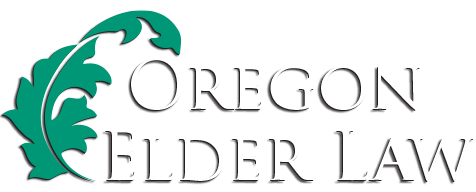Estate Planning
An estate plan is normally comprised of a Will or a Trust, a Durable Power of Attorney and an Advance Directive. In establishing an estate plan, a client is being proactive by giving instructions to family and friends about his or her wishes in the event of his or her death or incapacity.
Trusts
A Revocable Living Trust is one of the main documents used as part of an Estate Plan. There are many reasons why a client may choose to create a Trust rather than a Will. One reason is that a Trust provides privacy and avoids the need for a probate upon the clients death. Another is that a Trust plans for incapacity by appointing a Successor Trustee who can step into the client’s shoes and handle his or her assets when the client is unable to do so for him or herself.
The creators of the Trust are called Settlors. The Settlors transfer property into the trust for their benefit during their lifetimes, and then for the remainder beneficiaries after their death. The Trustee manages the Trust. Settlors often times act as their own Trustees, or they can appoint a trusted third party to act as Trustee. With a revocable trust, the Settlors retain the right amend or revoke the Trust.
With a Trust based plan, the client will need what is known as a pour-over Will. The pour-over Will picks up any assets that are inadvertently left out of the trust and pours them over into the trust at death.
Wills
A Will is a legal document that directs the disposition of a client’s property upon his or her death. The Will nominates a Personal Representative who is responsible for administering the estate and distributing the assets to the named persons under the Will.
A Will is admitted to probate and the nominated Personal Representative is appointed to administer the estate. The probate process takes a minimum of five months. This is partly due to the four-month creditor search period. The Judge oversees the actions of the Personal Representative who is charged with collecting the assets, paying the bills and distributing the assets. The Personal Representative is required to report to the Court at different times, and must file a detailed accounting before assets are distributed. The Personal Representative works closely with the attorney to comply with the court rules and procedures. One advantage of a probate is that it definitively cuts off creditors after a four month claim period.
Durable Power of Attorney
A Power of Attorney appoints an Agent to handle a client’s finances when the client is unable to do so for him or herself. The Power of Attorney remains in effect even after the client becomes ill or incapacitated. The Power of Attorney is a powerful legal document, as it allows the Agent to step into the client’s shoes and make important financial decisions regarding income, finances and property.
If a client becomes incapacitated does not have a Power of Attorney, or if the Power of Attorney is being misused, a Conservatorship may be necessary to manage the client’s income and assets.
Advance Directive
An Advance Directive accomplishes two goals. First, it appoints a Health Care Representative to make health care decisions in the event the client is unable to do so for himself or herself. Second, it gives instructions to the Health Care Representative about the client’s wishes regarding end of life care.




